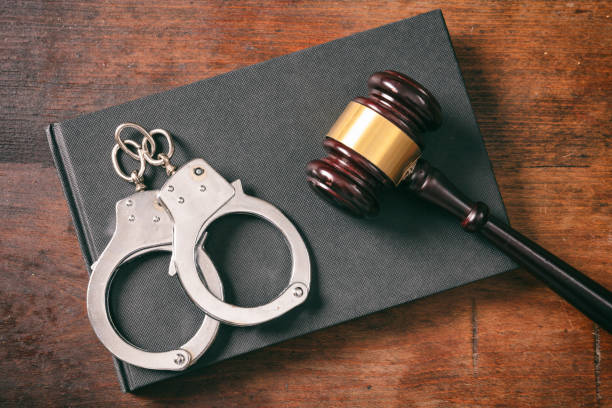In the intricate web of society, the Legal System stands as a formidable edifice, a labyrinth of rules and institutions designed to maintain order, administer justice, and safeguard individual rights. Understanding the nuanced functions of the Legal System is paramount to navigating the complex tapestry of laws that govern our daily lives.
Table of Contents
ToggleThe Legal Lexicon
The Legal System, with its arsenal of terms and doctrines, creates a lexicon that often appears esoteric to the uninitiated. From jurisprudence to habeas corpus, these terms are the building blocks of legal discourse.
Jurisprudence: The Philosophy of Law
At the philosophical core of the Legal System lies jurisprudence, the systematic study and interpretation of law. It delves into the theoretical underpinnings of legal principles, exploring the nature of justice, rights, and the role of law in society.
Habeas Corpus: Safeguarding Personal Liberty
Habeas corpus, a Latin term translating to “you shall have the body,” is a legal remedy ensuring the protection of individual liberty. This writ prevents unlawful detention or imprisonment, serving as a bulwark against arbitrary state action.
The Pillars of the Legal System
Understanding the functions of the Legal System requires an exploration of its fundamental pillars, each serving a distinctive purpose in the administration of justice.
Legislative Branch: Crafting Laws
The legislative branch, often comprising elected representatives, is tasked with crafting laws that codify societal norms. These statutes emanate from a meticulous process of deliberation, embodying the collective will of the people.
Judicial Branch: Arbiter of Disputes
The judicial branch serves as the arbiter of disputes, interpreting laws and ensuring their application in specific cases. Judges, through rigorous analysis and application of legal principles, dispense justice and establish precedents that shape the legal landscape.
Executive Branch: Enforcing Laws
The executive branch, headed by government officials, executes and enforces the laws promulgated by the legislative branch. Law enforcement agencies operate within this purview, ensuring compliance and maintaining public order.
Legal Procedures: Navigating the Judicial Maze
Within the Legal System, legal procedures form the backbone of due process, guaranteeing fairness and protecting the rights of individuals.
Due Process: Safeguarding Fairness
Due process, a constitutional guarantee, ensures that legal proceedings are fair and just. It encompasses the right to notice, a fair hearing, and the opportunity to present evidence, safeguarding individuals from arbitrary government action.
Adversarial System: Clash of Legal Titans
Many legal systems adopt an adversarial system, where opposing parties present their cases before an impartial adjudicator. This clash of legal titans, replete with arguments and counterarguments, seeks to unveil the truth and secure justice.
Legal Remedies: Seeking Justice
In the realm of the Legal System, legal remedies provide individuals with the means to address grievances and seek redress for wrongs.
Injunctions: Halting Unlawful Actions
Injunctions, judicial orders prohibiting specific actions, act as preventive measures to halt unlawful conduct. They are a powerful legal remedy, restraining parties from causing harm or violating rights pending a full legal resolution.
Restitution: Repairing Wrongs
Restitution, a legal remedy focusing on restoring the injured party to their pre-harm state, aims to repair the wrong inflicted. It is not merely punitive but seeks to rectify the injustice by compensating for losses suffered.
The Evolution of the Legal System
The Legal System is not a static entity; it evolves to address the changing needs of society, technological advancements, and shifting moral paradigms.
Cyber Law: Navigating the Digital Frontier
The advent of the digital age has given rise to cyber law, a specialized domain addressing legal issues in the realm of technology. From digital privacy to cybercrime, this facet of the Legal System grapples with the challenges posed by the ever-expanding digital frontier.
Environmental Law: Safeguarding Nature
Environmental law is a testament to the expanding scope of the Legal System. It addresses the legal aspects of environmental protection, conservation, and sustainable development, recognizing the interdependence between legal frameworks and the health of our planet.
In Conclusion: Navigating Legal Waters
Understanding the functions of the Legal System is akin to navigating treacherous waters with a legal compass in hand. It is a dynamic force, intricately entwined with the ebb and flow of societal needs and values. As we traverse the legal landscape, the pillars of jurisprudence, legal procedures, and evolving domains stand as guiding beacons, ensuring that justice remains not just an abstract concept but a tangible reality.



